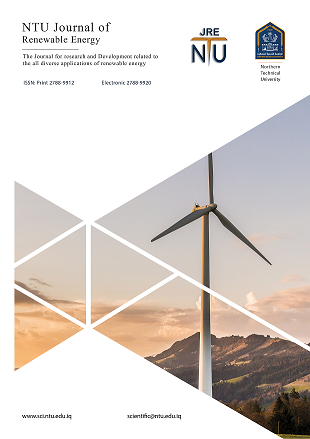Journal Cover

NTU-JRE is sensitive to research misconduct and uses all means available to prevent publishing miscounted research. Though there is no standard definition of research misconduct, the Council of Editors defines research misconduct broadly in three categories of action and conduct. NTU-JRE uses this definition of misconduct in dealing with the issue and strictly follows the COPE guidelines in dealing with research misconduct. In addition, for each component of the research misconduct, NTU-JRE has many assurance policies as follows:
- Mistreatment of research subjects
- Falsification and Fabrication of Data
- Piracy and Plagiarism
Mistreatment of Research Subjects Policy
The Northern Technical University Journal of Renewable Energy (NTU-JRE) upholds the highest ethical standards in research and publishing. The journal prohibits any mistreatment of research subjects and requires strict adherence to data protection and confidentiality regulations. Studies involving systems, devices, or field experiments must ensure the safety of participants, communities, and the environment. Research with harmful, unsafe, or unethical applications will not be published.
Falsification and Fabrication of data
Fabrication is making up data without collecting or synthesizing scientific data. Falsification is the manipulation of research material to reach a favorable result. Fabrication and falsification could happen at any stage of research (in the field) up to the publication of a manuscript, where misuse of citation can happen (referencing a citation when the citation does not support the argument). NTU-JRE tries to identify any kind of fabrication or falsification in all levels of manuscript processing, from initial screening to comprehensive evaluation of a revised manuscript and even after a manuscript has been published. Reporting any fabrication and falsification is an ethical duty of our authors, co-authors, reviewers, editors, and readers. In any event of falsification or fabrication, NTU-JRE keeps its right to retract or withdraw the fabricated or falsified article. NTU-JRE strictly follows the COPE follow chart in dealing with fabrication and falsification.
Plagiarism
Plagiarism involves using another person’s ideas, methods, results, or words without proper acknowledgment. A related concern is self-plagiarism, which occurs when an author republishes their own ideas, data, or text in multiple journals without disclosure. NTU-JRE employs all available tools to detect plagiarism. For quality assurance, manuscripts showing more than 20% textual similarity are returned to the author for revision to minimize potential plagiarism. The journal follows COPE guidelines strictly when handling cases of plagiarism.
Journal Cover

